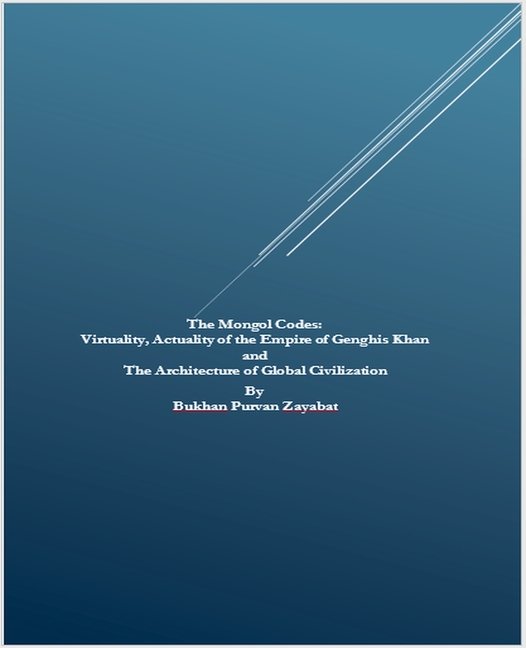Description
The Mongol Codes reexamines the Mongol Empire as a dynamic system of global governance-rooted in ethical pluralism, institutional adaptability, and intellectual cosmopolitanism. Long before the modern state emerged, the Mongols established a transcontinental civilizational model that combined decentralized authority, interfaith governance, fiscal minimalism, and deliberative institutions-anticipating many of the challenges and opportunities facing the 21st century.
Drawing on Gilles Deleuze's concept of the rhizome-a non-linear, anti-hierarchical, constantly evolving structure-this book positions Mongol statecraft as a forerunner to today's distributed networks of power, thought, and resilience. Genghis Khan's world was not a rigid empire, but a flexible system animated by motion, multiplicity, and meaning. From the Ool-d institution for reasoning of reasoning to the Ortoq transcontinental partnership investment network houses, from the Anda brotherhoods to the empire's legal universality, the Mongol model offers overlooked foundations for contemporary institutional reform.
Across six comprehensive parts and twenty-four chapters, the book presents:
- A Deleuzian reframing of Mongol governance as nomad philosophy in action-governing without centralization, ruling without domination;
- A deep dive into the empire's "Illuminati ethics"-secretive, meritocratic, and spiritually inclusive bodies such as the Anda, Kholog, Orlog, and Gishigtan;
- A complete exposition of the Mongol economic codes-emphasizing 3.3% taxation, entrepreneurial philanthropy, and state investment in infrastructure and welfare;
- A comparative reading of the Mongol Code's influence on the rise of Europe as global power, the U.S. Constitution, modern diplomacy, and pluralistic legal theory;
- A visionary institutional proposal: the restoration of the Ool-d, a institution for reasoning-of-reason, as a transdisciplinary, ethical decision-making body for universities, corporations, and planetary governance.
Supported by historical analysis and philosophical insight-from Paul Kennedy's strategic frameworks to Jack Weatherford's studies of tolerance, and from Frankopan's Silk Road narratives to postmodern political theory-The Mongol Codes challenges us to think beyond the constraints of nation, hierarchy, and permanence.
This is a work for scholars, policy-makers, and visionaries seeking to rethink civilization's architecture. It is an invitation to rediscover the Mongol legacy not as a footnote to empire, but as a blueprint for ethical, resilient, and truly global futures.
Product Details
- Jul 11, 2025 Pub Date:
- 9798230869023 ISBN-10:
- 9798230869023 ISBN-13:
- English Language




